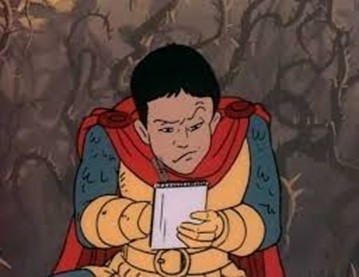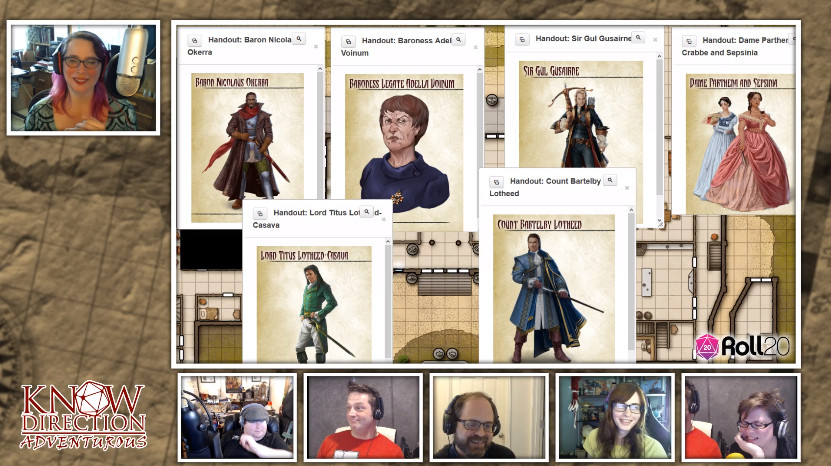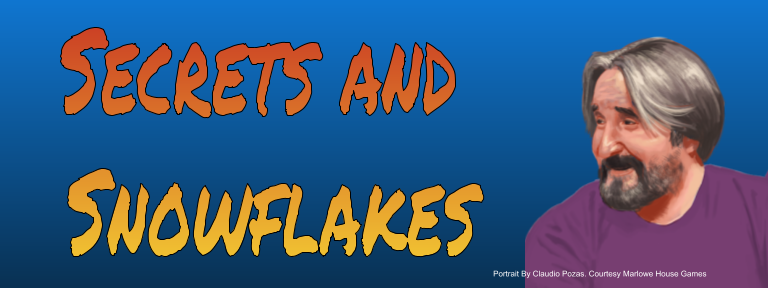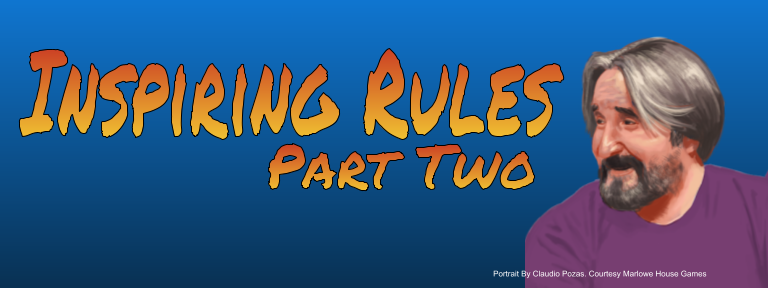On this network’s flagship podcast, Ryan and Perram had a lively discussion about backgrounds. Their conversation touched on things I’ve been thinking about lately as well so I figured why not examine a few of those things as a part of this blog. Now long term readers of Burst of Insight may remember I covered Effective Character Backgrounds some time ago. That article is still worth reading but my views of what constitutes a good or effective background evolves constantly.
So, given the conversation on air, I should stipulate that I like characters with backstories. Whether it’s my own PCs or the PCs of my players I like backstories. For my characters, past is prologue. Often my character’s past informs how I relate to events in the campaign. Often this is most important at low levels because events that occur at the table tend to (and should) exert more influence on my PCs. Now I don’t need a novel-length backstory or even a short story. Three hundred words and a few bullet points are probably more than sufficient. Sometimes even fewer. When it comes to my player’s characters I like to have the character’s backstory so I can find ways to weave their characters deeper into the campaign narrative, plus as Perram points out during the podcast, backstories are often good indicators of what kinds of stories the players are interested in. I won’t go so far as to say everything in a backstory must be used directly it doesn’t hurt to look for themes and ways later campaign events might parallel events from the characters’ pasts.
Right now, I’d like to echo one of Ryan’s points. Talk to your players right away about elements of their backstory that excite you as the GM and find out why those elements are there. If you find out that Ryan has a tragic unsolved mystery at the center of his character concept and his excitement lands on exploring a character haunted by this unresolved tragedy maybe you don’t solve the mystery. Perhaps instead you introduce an NPC who parallels the themes of the mystery. If a player has an estranged son you don’t have to bring the son into your narrative if the PC wants to keep that situation unresolved. Instead, maybe there’s an NPC who’s just entering a similar situation and needs the PC’s advice. Or the NPC is a young person about the same age as the PC’s son and is in need of a mentor. You have a lot of options for using a player’s backstory so it’s worth making sure you don’t irreparably damage the PC’s image of their character by having these conversations early.
So that’s what I like about backstories (particularly me as a GM) but not all of my players engage with their characters or their stories the way I do. My wife typically likes to discover the character as she plays. She’ll have a vague idea of who the character is and as we play she’ll start filling in her backstory sometimes comparing and contrasting the events of the campaign and sometimes drawing from (seemingly) unrelated events in her life or the media she consumes. Other players at my table have little interest in backgrounds at all, instead, they develop their character only from the moment it hits the table and moving forward. In a normal campaign even if I specifically ask for backgrounds I’ll only get one or two.
A Living Backstory
My table and I experiment with new-to-us approaches to various aspects of gaming that we don’t like or don’t get as much mileage from as we might like. Backgrounds included. I have to give credit where credit is due. While I’ve wanted to do flashback scenes in my tabletop games in the past I never played in a game where flashbacks were used much. So lacking any experiences to model it’s been a trick I’ve used maybe only once or twice with middling success. Since I’ve started watching and listening to actual plays I’ve seen how some other GMs have used it effectively and seen some pitfalls to avoid as demonstrated by others. Flashbacks can be an effective way to create a living backstory for the characters in your game.
During a recent game-session, Monica asked if she might have had a mentor she could call on. I agreed and we spent a special session one-on-one giving the NPC a rough outline then we spent about 20 minutes playing through a scene that had the two characters meeting for the first time.
When I ran that scene, I let her have a lot of the narrative reigns. She played most of the NPCs and I played the NPC Mentor and moved the action by moving him about. I have to say the experiment was a success and I’ll be making more use of similar scenes in the future. Because roleplaying through the backstory lets the players actually experience the past in the same way they experience the rest of the campaign it makes key elements of the backstory far more memorable.
All of these actual plays I’ve been consuming have encouraged me to mix running some of these scenes with the full table present and running other as side scenes with only the principle player(s) present. While on camera and mic the other players on these shows stay very engaged and focused on the whole story. I’m not certain my more casual group has the focus to run a lot of these sorts of scenes during the regular session when we can meet for 30 to forty minutes and resolve things without boring everyone else. Separate scenes also allow for participating players to recount events in their own words other than “I tell your characters all the stuff that just happened.”
I’m curious if any of you have tried role-playing through elements of your party’s backstories and what your experience with it was.







